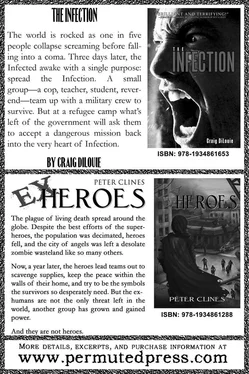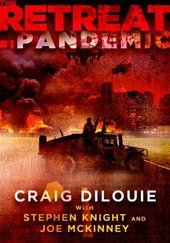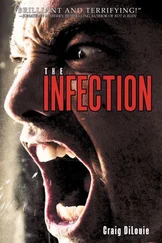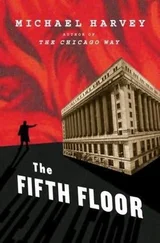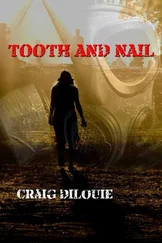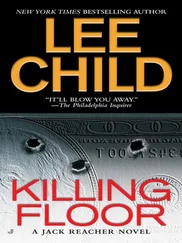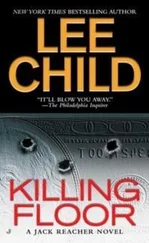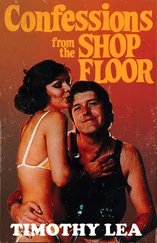On the other hand, no more perfect time exists. She could die within the next five minutes.
“If you want sex, I can give you that.”
“It’s not about that, Anne. I want you .”
He is asking her to feel, but she doubts she has anything to give him. She remembers Sarge in the government shelter, what seems like a lifetime ago, calling the Infected the living dead.
Us? he added. We’re the dead living.
The words shocked her at the time. Now she understands.
How can you ask me to love you, Marcus, when you might die before sunrise?
“I want you,” he repeats. “Don’t we deserve to be happy, even if for a little while?”
“I don’t know what that means anymore. I want to but I don’t know if I can.”
Marcus nods. “All right. Then I’ll settle for that.”
He smiles at her in the dark and Anne smiles back, a rare sight at any time of day.
Ray
While Ray twitches and sweats in a deep snoring sleep with his arms wrapped around Lola, he dreams the Infected are normal again. In the dream they stand outside where he left them, but it is bright and sunny instead of dark, and all of them are well dressed and clean and looking up at the sun, tears flowing down their cheeks as they smile. The men and women look at each other with wide, sparkling eyes. There is no hate here, no rage, just the thrill of freedom.
Lola, accustomed to dreaming of billions of monsters writhing like maggots across the scoured face of a red planet, finds herself at her house in Cashtown, weeding her garden while her children shriek and run barefoot through the sprinkler spray on the lawn. Her husband winks at her as he enters the garage to take out the lawnmower. She vows to hold onto the feeling she has looking at her family—a sense of her soul being filled to the brim with contentment—knowing nothing perfect lasts forever in this world. That night, as they drink wine and barbecue steaks and eat them outside in the cool dusk, she tells herself if she had to pick a day to relive, she would pick this one, this beautiful summer day spent doing almost nothing.
Outside, the other Infected moan in the darkness, free of the dreams of the red planet and the long exodus through space. They dream of the time before, reliving the past. They are free of the bonds of slavery at last, while Infection waits patiently until morning to reclaim its hosts.
Anne
Dawn is coming fast and the bus flies down the road, chasing a paling sky. The V-shaped snowplow retrofitted onto the front, peppered top to bottom with blood, sends the occasional Infected flying into the ditch with a thud. The engine growls as Marcus changes gears with the stick, slowing down and speeding up to navigate occasional wrecks blocking the road. The Rangers peer through the metal firing ports welded over the windows, Anne looking for any sign of Ray Young, the others watching for threats that specialize in the night. The air feels humid but cool against her skin. This has always been her favorite time of the day; it’s a new day, and anything can happen. For as long as she can remember, Anne has been a morning person.
Holding the edges of the seats to stay balanced as the bus bangs over potholes, she navigates the center aisle until she finds Gary, huddled against the window with his arms crossed.
“I’m sorry about Jean,” she says.
“How did you know what we did in the art gallery?”
“I found the evidence. It wasn’t hard to piece together.”
“You shouldn’t have judged her,” Gary tells her. “Her one sin was she refused to accept that things have changed. She honestly thought the whole thing would blow over and her life would pick up again almost where she’d left it. I think she thought once we got to Nightingale, she would find a Starbucks with Wi-Fi.”
Anne frowns. “Jean had bigger sins than that.”
“What we did, we did to survive. We were trapped. It was either that or die. But it wasn’t her. It was me. I was the one who did it. I made a choice. You should judge me, not Jean. Jean just ate.”
Anne nods. Her suspicion has been confirmed. “She just ate.”
“That’s right.”
“And that’s why I judge her, Gary. You, I don’t judge.”
Gary stares back at her stricken, on the verge of tears.
“I killed my friend and then we ate him,” he says. “You need to understand this.”
“You survived.”
“If you call living with that surviving.”
“Can you handle a weapon?”
“I’ve never fired a gun in my life,” he says. “I killed my friend with a knife.”
“We don’t talk about the past,” she says.
“I killed my friend with a knife,” Gary repeats with a shrill laugh. “It actually feels good to say it out loud. I was selling his paintings in my gallery and then a week later I cut his throat so Jean and I could eat him and live. It was hard work. Once I had him down, I had to lean and put all my weight into it. He hardly struggled. He just looked at me in surprise while I did it. I was pretty surprised too. I mean, I was outside my body, watching myself do it. I should be in jail, but here I am, alive, and he’s dead. Do you see what kind of person I am?”
“Are you willing to kill again to survive? If you had to?”
“I want to live,” Gary says after a pause.
“All right. We’ll give you a nine millimeter. If the Infected get close, you point it, you shoot it. You watch our backs, we watch yours. Think you can do that?”
“I can do it.”
“Good,” says Anne. “If you killed a man to survive, I can’t absolve you. None of us are shining examples of virtue; we’ve all done terrible things or we wouldn’t be here. But it tells me you have what it takes. That’s the only qualification that matters these days.”
“Anne!” Marcus calls from the driver’s seat at the front.
She feels the tug of gravity test her balance. The bus is slowing.
“Thank you,” Gary says, crying.
Anne stands and hurries toward the front.
“We’ve got people waving us down, about a hundred yards up the road,” Marcus says. “Cops having some car trouble, from the looks of it.”
Anne braces her feet with a wide stance and takes a look through her rifle scope. Standing next to a state police car, two large men wearing black T-shirts and load-bearing vests and jeans wave at the bus, flagging it down. The badges on their belts glint in the morning sun.
Something is wrong with their faces.
Anne blinks, thinking: Impossible.
The cops raise their guns, grinning at her across the remaining distance.
“Go, Marcus!” she screams, taking aim. “Keep going!”
Marcus obeys instantly, throwing the bus back into its highest gear and stepping on the gas. The machinery roars in response, lurching as it accelerates. Anne loses her footing and falls hard onto the floor, the rifle clattering away from her.
BANG BANG BANG BANG
Bullet holes pop through the windshield, spraying the interior with bits of glass. The Rangers drop to the floor, wrapping their arms around their heads. Marcus bellows with rage and pain, half out of his seat and driving blind.
BANG BANG BANG BANG
The bullets shatter the windshield and rip through the air, thudding into metal and bursting through the seats, sending bits of stuffing swirling around them. Wind rushes through the open windshield, carrying the faint tang of rotting milk.
Anne feels the hard, dusty floor under her scarred cheek and wonders how many kids stepped on this spot on their daily commute to school. She pictures their little sneakered feet. She closes her eyes and remembers visiting one of the many orphanages at Camp Defiance. She wanted to see children again. Pastor Strickland gave her a tour and showed her the rows of boys and girls drawing on construction paper with crayons—art therapy, he called it, endless scenes of fire and slaughter, Infected mommies attacking crying daddies, children running through the woods, red eyes identifying the Infected, slashes of blue representing the tears of the victims.
Читать дальше
